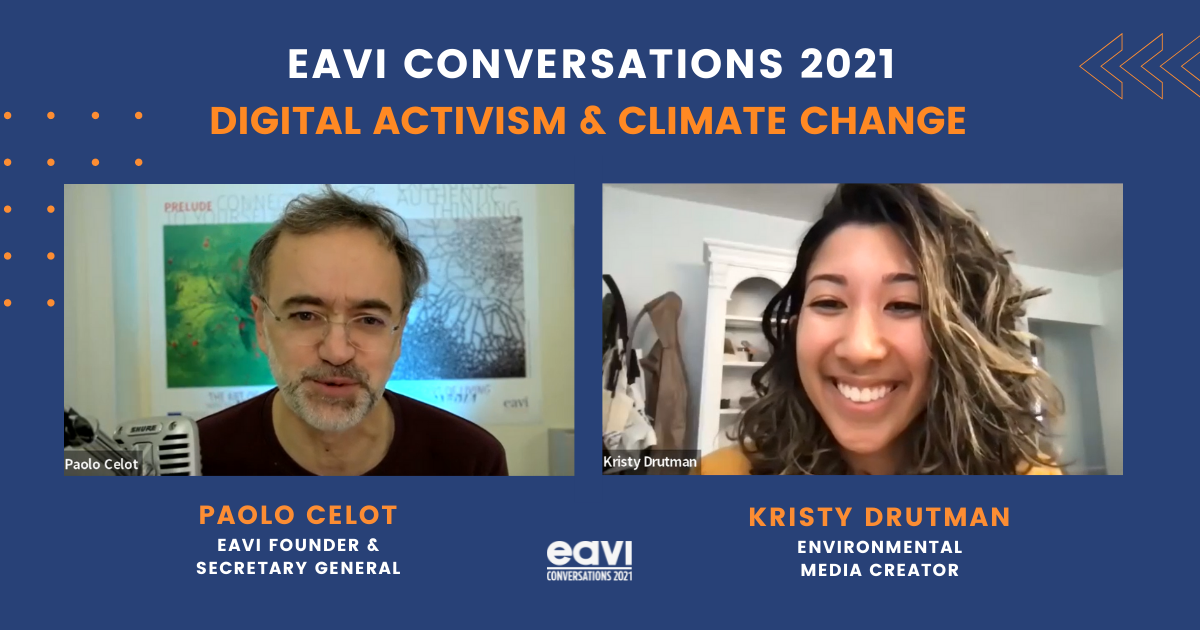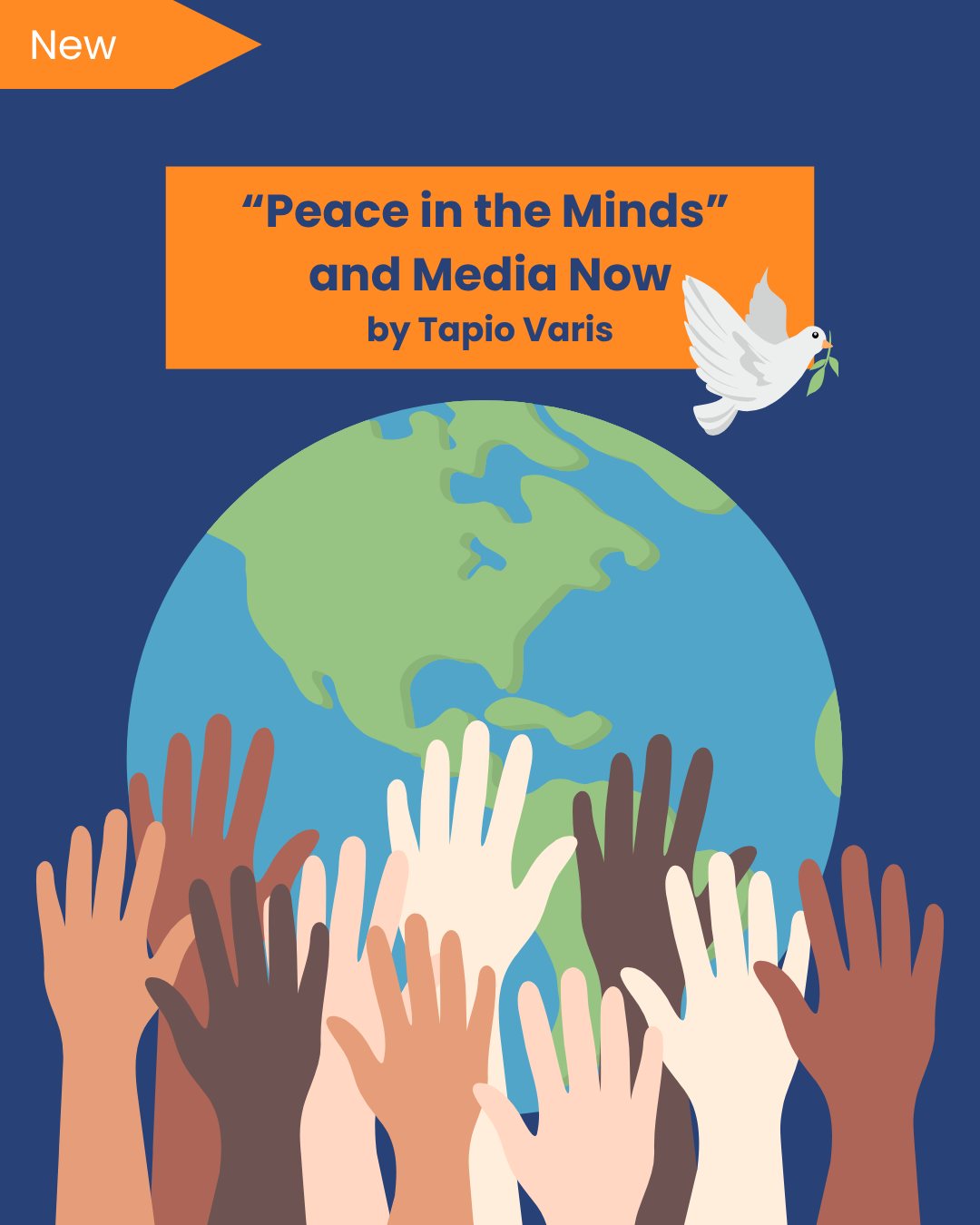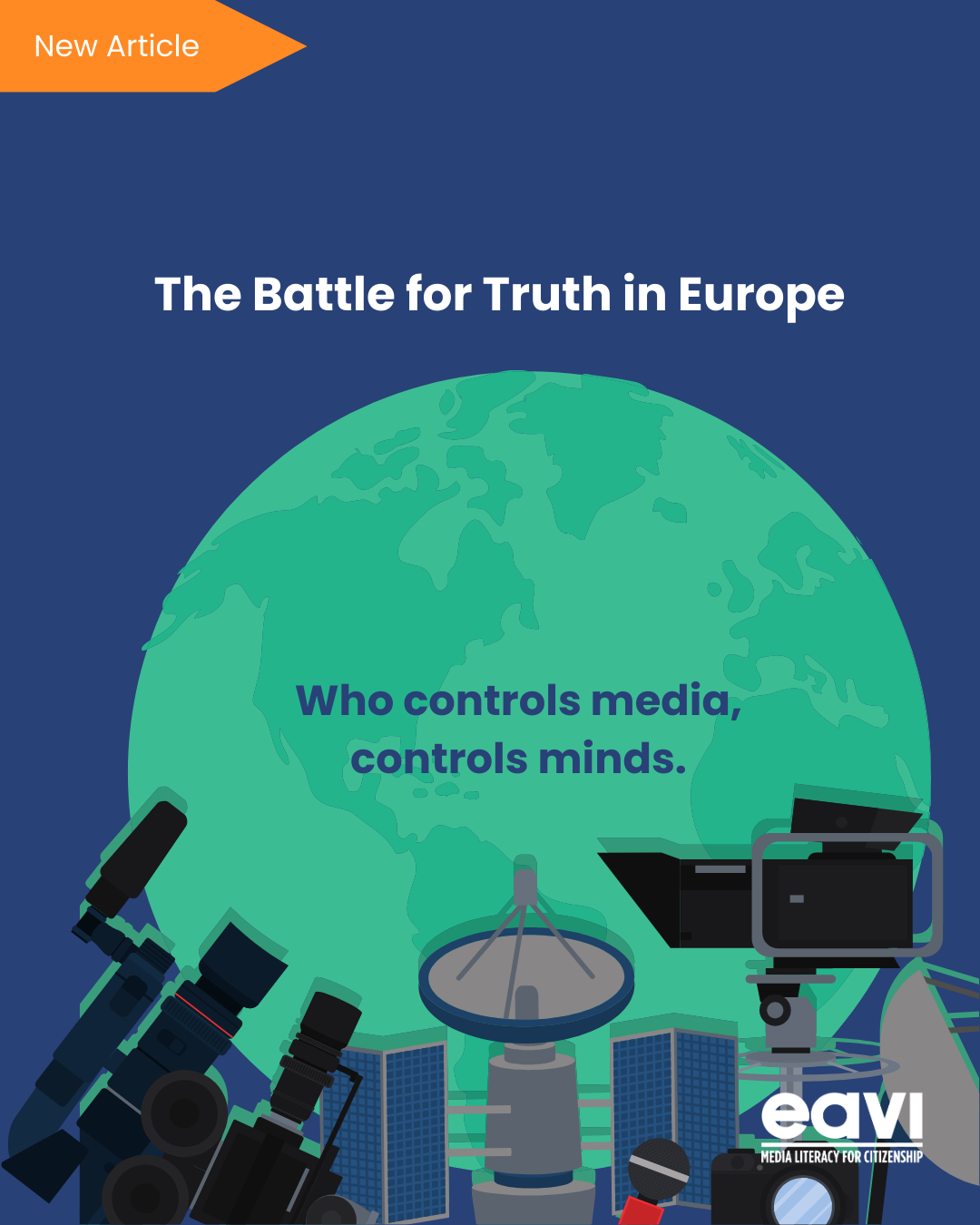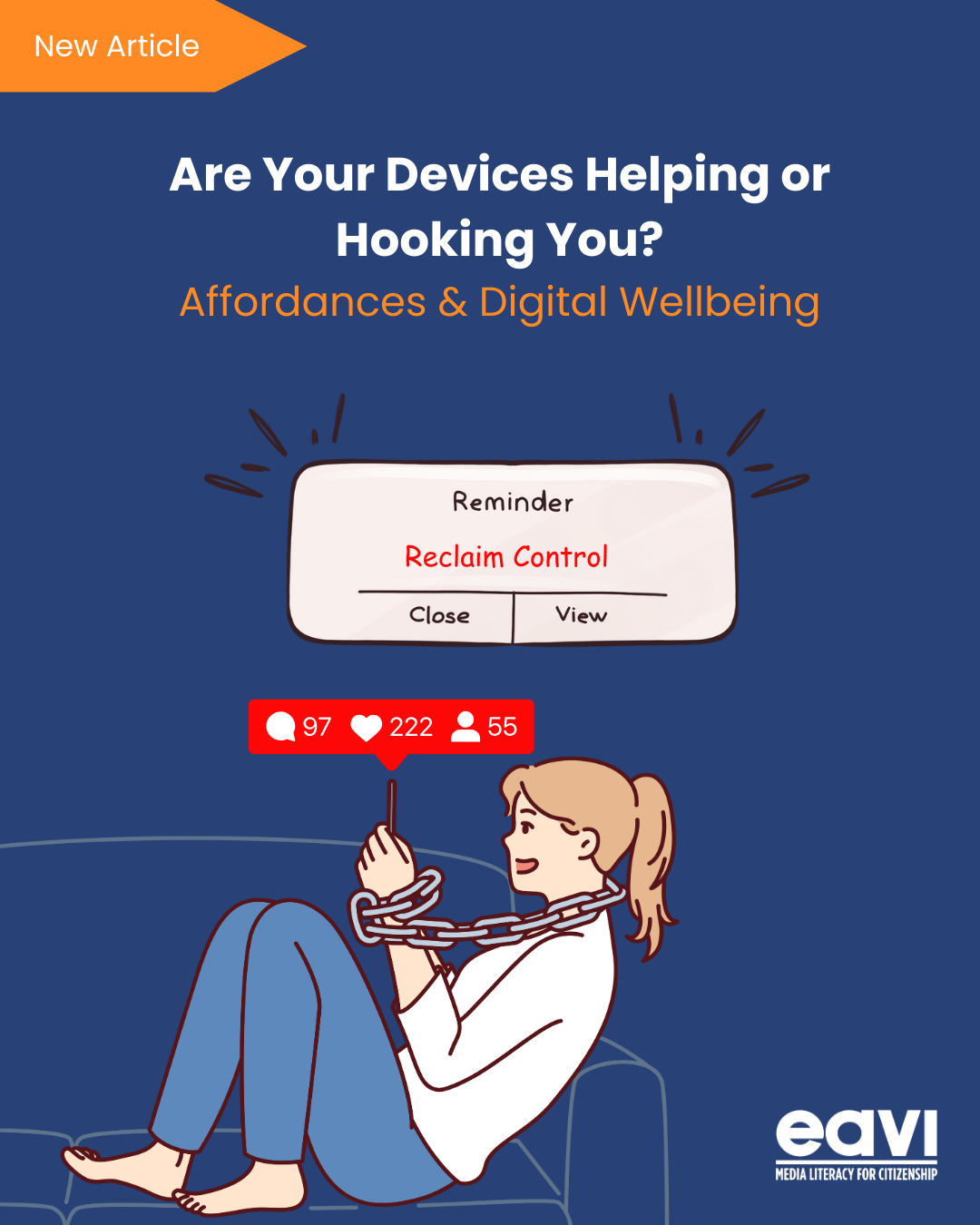Conclusions drawn from the discussion with Kristy Drutman – 2nd of December (EAVI Conversations 2021)

Whenever we think about climate change we imagine natural disasters, temperatures and sea levels rise. The general discourse also focuses sometimes on its impact on humanity in the future, but rarely is mentioned that climate injustice is affecting more certain categories than others. Wealth and social inequalities are some of the causes leading low-income individuals and minorities (just to name a few) to be greatly affected by global warming and whatever comes with it.
Kristy Drutman, the speaker in one of the sessions of EAVI Conversations, is a media creator raising awareness on the intersection between climate change and diversity/inclusion, to avoid that the problem is going to be tackled exclusively from a white supremacy standpoint. Kristy cares about the environment due to its effect on human rights, trying not only to sensitise on the topic but also pushing people towards action. Action and activism are the priorities in the fight against climate change, as Kristy affirms that people are already aware of the problem, but unfortunately, this is nobody’s main concern. Firstly, because people are more worried about inequalities in the labour market, health insurance coverage (all matters linked to social injustice); and secondly because they wouldn’t know what to do if they took action. Thus, climate change is not given the relevance it deserves.
Kristy is making her part to improve this scenario by producing valuable, enticing, visually engaging and educational content, while at the same time building a community where her followers do not only listen to her but where they also feel heard. That is the key to her success, whose product you can see on her blog Brown Girl Green.
She doesn’t consider herself a real activist, as she is not active on the ground, and she is not part of any community. Her added value is the strategic use of media and social media to move forward and along the efforts done offline by her colleagues, giving more visibility to the topic of climate change and making it more accessible to everyone. She has no doubt that social media are the most powerful tools we have at our disposal to mobilise more and more people, boosting the work done in the field, but at no time they could ever replace street protests and live demonstrations.
On the other hand, social media are also a fertile ground for climate deniers to spread their views on the topic, and yet it is not a minority asserting that global warming is not really happening. They can also use social media cleverly, being really vocal and dismissive on these platforms, gaining unfortunately a lot of resonance. When asked whether part of her mission was also to resonate with climate deniers, proving to them that the problem is real and pressing, Kristy replied saying that it is really difficult to succeed in changing their mind. For this reason, her goal is to reach and “convert” to the cause of people uncertain on which way to go or how to act. Overall individuals already sensible to the climate change problem, together with the “uncertain”, are a great bulk of the population, so there is no need to invest time and resources in the “inconvertible”.
Apart from the activists’ and influencers’ jobs and efforts, it is important to analyse how media outlets are contributing to this area. In Kristy’s opinion, the media are not giving climate change the importance that it should have. Most news is dedicating a minimum amount of time to the issue, and only when it can be linked to major storms or natural disasters happening around the world. Moreover, it is presented as a catastrophe we will be facing at some point in the future, without never pointing out that instead it is happening right now, and it is likely to only get worse as time goes by. It goes without saying that disinformation plays an important role in this scenario and that misleading information on data, studies and climate change repercussions are commonplace. How can we fight this? Kristy thinks we should all start from a simple assumption: we should question everyone and everything, even people we trust, come up with critical solutions and debunk false claims showing data and facts. Everyone should do his/her own research and prepare an exhortation against deniers.
We are keen to conclude this article with some guidelines, provided by our guest, on how to become more involved in environmental protection:
- Involvement in local communities through local-based organisations;
- Volunteer your time or donate to an organisation, for this to be able to scale up in terms of capacities and resources;
- Engage civically, being informed on environmental problems and initiatives in your own community;
- Be more knowledgeable about policies in the field;
- Never do it alone.
To her present and potential colleagues, Kristy advises to always pay attention to content accessibility for the general public and target mainly companies and corporations to be more accountable towards the environment, to reduce their carbon footprints, etc. and sign more petitions.
Whatever you do for the environment, whether online or offline, never do it alone!
Are you interested in watching the different sessions of the EAVI Conversations 2021?
Conclusions drawn from the discussion with Kristy Drutman – 2nd of December (EAVI Conversations 2021)

Whenever we think about climate change we imagine natural disasters, temperatures and sea levels rise. The general discourse also focuses sometimes on its impact on humanity in the future, but rarely is mentioned that climate injustice is affecting more certain categories than others. Wealth and social inequalities are some of the causes leading low-income individuals and minorities (just to name a few) to be greatly affected by global warming and whatever comes with it.
Kristy Drutman, the speaker in one of the sessions of EAVI Conversations, is a media creator raising awareness on the intersection between climate change and diversity/inclusion, to avoid that the problem is going to be tackled exclusively from a white supremacy standpoint. Kristy cares about the environment due to its effect on human rights, trying not only to sensitise on the topic but also pushing people towards action. Action and activism are the priorities in the fight against climate change, as Kristy affirms that people are already aware of the problem, but unfortunately, this is nobody’s main concern. Firstly, because people are more worried about inequalities in the labour market, health insurance coverage (all matters linked to social injustice); and secondly because they wouldn’t know what to do if they took action. Thus, climate change is not given the relevance it deserves.
Kristy is making her part to improve this scenario by producing valuable, enticing, visually engaging and educational content, while at the same time building a community where her followers do not only listen to her but where they also feel heard. That is the key to her success, whose product you can see on her blog Brown Girl Green.
She doesn’t consider herself a real activist, as she is not active on the ground, and she is not part of any community. Her added value is the strategic use of media and social media to move forward and along the efforts done offline by her colleagues, giving more visibility to the topic of climate change and making it more accessible to everyone. She has no doubt that social media are the most powerful tools we have at our disposal to mobilise more and more people, boosting the work done in the field, but at no time they could ever replace street protests and live demonstrations.
On the other hand, social media are also a fertile ground for climate deniers to spread their views on the topic, and yet it is not a minority asserting that global warming is not really happening. They can also use social media cleverly, being really vocal and dismissive on these platforms, gaining unfortunately a lot of resonance. When asked whether part of her mission was also to resonate with climate deniers, proving to them that the problem is real and pressing, Kristy replied saying that it is really difficult to succeed in changing their mind. For this reason, her goal is to reach and “convert” to the cause of people uncertain on which way to go or how to act. Overall individuals already sensible to the climate change problem, together with the “uncertain”, are a great bulk of the population, so there is no need to invest time and resources in the “inconvertible”.
Apart from the activists’ and influencers’ jobs and efforts, it is important to analyse how media outlets are contributing to this area. In Kristy’s opinion, the media are not giving climate change the importance that it should have. Most news is dedicating a minimum amount of time to the issue, and only when it can be linked to major storms or natural disasters happening around the world. Moreover, it is presented as a catastrophe we will be facing at some point in the future, without never pointing out that instead it is happening right now, and it is likely to only get worse as time goes by. It goes without saying that disinformation plays an important role in this scenario and that misleading information on data, studies and climate change repercussions are commonplace. How can we fight this? Kristy thinks we should all start from a simple assumption: we should question everyone and everything, even people we trust, come up with critical solutions and debunk false claims showing data and facts. Everyone should do his/her own research and prepare an exhortation against deniers.
We are keen to conclude this article with some guidelines, provided by our guest, on how to become more involved in environmental protection:
- Involvement in local communities through local-based organisations;
- Volunteer your time or donate to an organisation, for this to be able to scale up in terms of capacities and resources;
- Engage civically, being informed on environmental problems and initiatives in your own community;
- Be more knowledgeable about policies in the field;
- Never do it alone.
To her present and potential colleagues, Kristy advises to always pay attention to content accessibility for the general public and target mainly companies and corporations to be more accountable towards the environment, to reduce their carbon footprints, etc. and sign more petitions.
Whatever you do for the environment, whether online or offline, never do it alone!
Are you interested in watching the different sessions of the EAVI Conversations 2021?
Conclusions drawn from the discussion with Kristy Drutman – 2nd of December (EAVI Conversations 2021)

Whenever we think about climate change we imagine natural disasters, temperatures and sea levels rise. The general discourse also focuses sometimes on its impact on humanity in the future, but rarely is mentioned that climate injustice is affecting more certain categories than others. Wealth and social inequalities are some of the causes leading low-income individuals and minorities (just to name a few) to be greatly affected by global warming and whatever comes with it.
Kristy Drutman, the speaker in one of the sessions of EAVI Conversations, is a media creator raising awareness on the intersection between climate change and diversity/inclusion, to avoid that the problem is going to be tackled exclusively from a white supremacy standpoint. Kristy cares about the environment due to its effect on human rights, trying not only to sensitise on the topic but also pushing people towards action. Action and activism are the priorities in the fight against climate change, as Kristy affirms that people are already aware of the problem, but unfortunately, this is nobody’s main concern. Firstly, because people are more worried about inequalities in the labour market, health insurance coverage (all matters linked to social injustice); and secondly because they wouldn’t know what to do if they took action. Thus, climate change is not given the relevance it deserves.
Kristy is making her part to improve this scenario by producing valuable, enticing, visually engaging and educational content, while at the same time building a community where her followers do not only listen to her but where they also feel heard. That is the key to her success, whose product you can see on her blog Brown Girl Green.
She doesn’t consider herself a real activist, as she is not active on the ground, and she is not part of any community. Her added value is the strategic use of media and social media to move forward and along the efforts done offline by her colleagues, giving more visibility to the topic of climate change and making it more accessible to everyone. She has no doubt that social media are the most powerful tools we have at our disposal to mobilise more and more people, boosting the work done in the field, but at no time they could ever replace street protests and live demonstrations.
On the other hand, social media are also a fertile ground for climate deniers to spread their views on the topic, and yet it is not a minority asserting that global warming is not really happening. They can also use social media cleverly, being really vocal and dismissive on these platforms, gaining unfortunately a lot of resonance. When asked whether part of her mission was also to resonate with climate deniers, proving to them that the problem is real and pressing, Kristy replied saying that it is really difficult to succeed in changing their mind. For this reason, her goal is to reach and “convert” to the cause of people uncertain on which way to go or how to act. Overall individuals already sensible to the climate change problem, together with the “uncertain”, are a great bulk of the population, so there is no need to invest time and resources in the “inconvertible”.
Apart from the activists’ and influencers’ jobs and efforts, it is important to analyse how media outlets are contributing to this area. In Kristy’s opinion, the media are not giving climate change the importance that it should have. Most news is dedicating a minimum amount of time to the issue, and only when it can be linked to major storms or natural disasters happening around the world. Moreover, it is presented as a catastrophe we will be facing at some point in the future, without never pointing out that instead it is happening right now, and it is likely to only get worse as time goes by. It goes without saying that disinformation plays an important role in this scenario and that misleading information on data, studies and climate change repercussions are commonplace. How can we fight this? Kristy thinks we should all start from a simple assumption: we should question everyone and everything, even people we trust, come up with critical solutions and debunk false claims showing data and facts. Everyone should do his/her own research and prepare an exhortation against deniers.
We are keen to conclude this article with some guidelines, provided by our guest, on how to become more involved in environmental protection:
- Involvement in local communities through local-based organisations;
- Volunteer your time or donate to an organisation, for this to be able to scale up in terms of capacities and resources;
- Engage civically, being informed on environmental problems and initiatives in your own community;
- Be more knowledgeable about policies in the field;
- Never do it alone.
To her present and potential colleagues, Kristy advises to always pay attention to content accessibility for the general public and target mainly companies and corporations to be more accountable towards the environment, to reduce their carbon footprints, etc. and sign more petitions.
Whatever you do for the environment, whether online or offline, never do it alone!








































































































































































